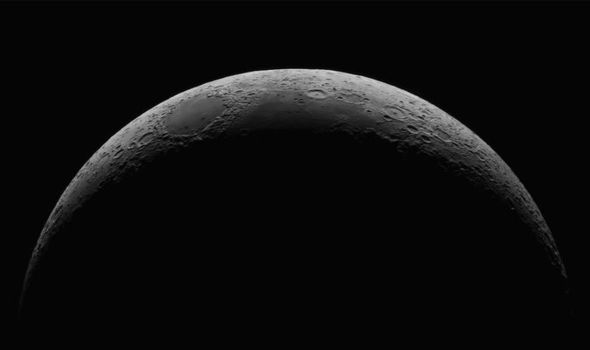Black Moon Astrological Impact: Rare Black Moon to Rise on August 23 — Here’s What It Means for You

Black Moon Astrological Impact: Rare Black Moon to Rise on August 23 — Here's What It Means for You
This weekend, the night sky is set to mark a rare celestial event that has captured the attention of both skywatchers and astrology enthusiasts alike — the Black Moon. Though it might sound mysterious or even ominous, this lunar phenomenon is part of the natural rhythm of the Moon’s cycle. However, its rarity and the symbolism attached to it have stirred curiosity, awe, and even a bit of unease in some circles.
So, what exactly is a Black Moon, when can you expect it to occur, and what does it mean for you astrologically and spiritually?
What Is a Black Moon and Why Is It Rare?
The term Black Moon isn’t an official term in astronomy, but it’s widely used to describe a few specific lunar occurrences that don’t happen very often. In the case of August 23, 2025, the Black Moon falls under what’s known as the “seasonal” definition — that is, the third new moon in a season that contains four.
Typically, each season (spring, summer, fall, and winter) experiences three new moons. But sometimes, due to the way the lunar cycle aligns with our calendar, a fourth new moon sneaks in. When that happens, the third one in the sequence is dubbed the Black Moon.
In 2025, summer in the Northern Hemisphere began with a new moon on June 25, followed by others on July 23, August 23, and September 21. That makes August 23 the Black Moon of the season. These seasonal Black Moons only happen once every 33 months, making them quite rare.
Another definition of a Black Moon is when there are two new moons in one calendar month — but this variant won’t occur again until August 31, 2027.
When and Where Will the Black Moon Occur?
The Black Moon will officially reach its new moon phase at 2:06 a.m. EDT (06:06 GMT) on August 23, which corresponds to 11:06 p.m. PDT on August 22. During this time, the Moon will be located in the constellation Leo, just 1 degree north of the Sun.
For viewers in parts of the world, including India, this celestial event will align with Saturday night, but don’t expect a stunning visual — the Moon will be virtually invisible. That’s because during a new moon phase, the side of the Moon that is illuminated by the Sun faces away from Earth. So, the Moon will rise and set with the Sun, cloaked in darkness.
This phase is also referred to as Amavasya in traditional Indian culture — a time often associated with introspection, spiritual rituals, and renewal.
Biblical References: Is the Black Moon a Bad Omen?
The appearance of a Black Moon has also drawn attention from religious and prophetic interpretations, particularly due to a verse in the Bible. The passage from Mark 13:24 reads: “The sun will be darkened, and the moon will not give its light.”
Some have linked this to the Black Moon phenomenon, interpreting it as a potential warning or bad omen. However, from a scientific and astronomical standpoint, this verse merely aligns with the natural occurrence of a new moon, during which the Moon does not reflect sunlight toward Earth.
So while it’s tempting to tie the event to prophetic warnings or celestial symbolism, experts assure that the Black Moon is not a sign of disaster, but rather a predictable and recurring lunar phase.
Can You See the Black Moon?
In short — no, you can’t really see a Black Moon. As NASA explains, during a new moon, the side of the Moon that faces Earth isn’t illuminated by the Sun, making it completely invisible in the sky.
But don’t be disappointed. The real visual treat comes after the Black Moon, when the thinnest crescent of the Moon makes its reappearance. On the evenings of August 24 and 25, just 30 to 40 minutes after sunset, look toward the western horizon. You may catch a glimpse of a delicate silver crescent — a symbol of new beginnings and quiet beauty.
Astrological Meaning of the Black Moon
While astronomers regard the Black Moon as a straightforward celestial occurrence, astrologers view it quite differently. In astrology, a Black Moon is considered a powerful time for transformation. It marks a phase of introspection, goal-setting, and personal rebirth. The energy surrounding this lunar event is said to support:
- Letting go of the past
- Releasing old emotional baggage
- Setting intentions for the future
- Manifesting dreams
- Spiritual and emotional healing
Because of its rare and potent energy, the Black Moon is seen as an auspicious time to plant the seeds of change, reflect deeply on your journey, and connect with your inner truth. It’s a moment to realign with your goals and embrace new possibilities with clarity.
Should You Be Concerned?
Absolutely not. While the name “Black Moon” may sound a little eerie — and while some may associate it with ominous signs or Biblical prophecy — in reality, it’s a fascinating natural event that highlights the beauty and precision of our universe. It’s not a harbinger of doom, but a gentle reminder of the ever-turning cycles of time. Whether you’re a stargazer, a spiritual seeker, or just someone who enjoys learning about the cosmos, the Black Moon on August 23, 2025, offers a perfect moment to pause, reflect, and renew.
Disclaimer: This article is intended for general informational and educational purposes. The astrological interpretations shared are based on traditional beliefs and should not be considered scientific fact. Readers are encouraged to interpret such phenomena based on their own personal beliefs and understanding.












